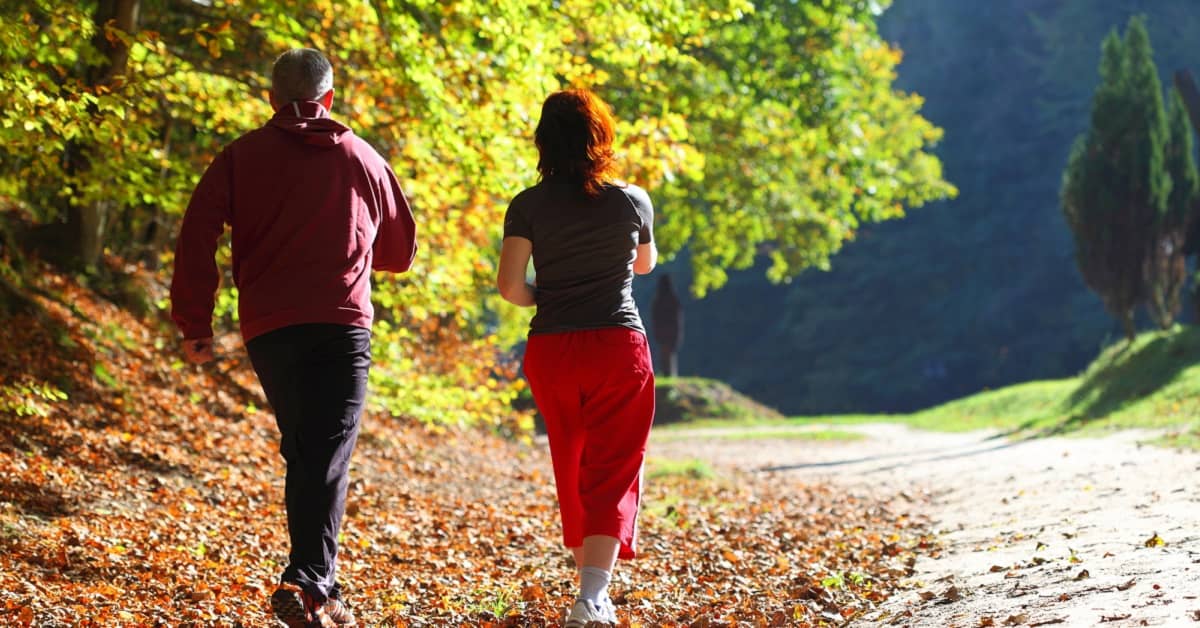
Remember the last time you stepped outside for a walk, feeling the sun warm your face and hearing birds chirp their daily symphony? That simple act might do more for your brain than all those brain-training apps and crossword puzzles combined. Like many of us, I used to think exercise was just about keeping my body fit - logging those steps, burning those calories, keeping the heart pumping. But it turns out that choosing the park over the treadmill could be one of the smartest decisions we can make for our mental well-being, especially when it comes to keeping our memory sharp as we age.
Key Takeaways
- Nature exposure boosts mental clarity and reduces brain fatigue.
- Walking in green environments can alleviate symptoms of depression and reduce stress.
- Avoiding multitasking while in nature amplifies the cognitive benefits.
Why Spending Time Outdoors Can Change Your Brain for The Better
Some say I’m a broken record when preaching the health benefits of getting outside for a daily walk. Regular exercise is one of the pillars of optimum health, but until now, I didn't realize how vital the "outside" part of my walk is for protecting my memory against decline. I found countless studies when I looked into the brain benefits of spending time in nature. And all the research points to the same conclusion: your brain loves nature. Think of your brain as a smartphone that's been running too many apps at once - it gets overheated, sluggish, and desperately needs a restart. That's exactly what happens to our minds in our modern world of endless notifications, deadlines, and digital demands. But nature, in all its green glory, acts like a gentle reset button. Scientists have even given this phenomenon a name: "attention restoration theory."
Improves Focus
It's as if every rustling leaf, every breath of fresh air, every moment spent under the open sky helps clear away the mental cobwebs and recharge our cognitive batteries. Just as we wouldn't expect our phones to run indefinitely without a recharge, we can't expect our brains to function optimally without these natural breaks.
In a nutshell, this theory asserts that people can concentrate better after spending time in nature. Rachel and Stephen Kaplan explored this topic in their book, The Experience of Nature: A Psychological Perspective. Among other things, the authors posit that nature can renew attention after exerting mental energy. This may be another reason to get fresh air after performing a taxing project requiring lots of brain power. Besides mental fatigue recovery, the authors say nature can also trigger self-reflection on life, priorities, and goals. Just how much nature do you need? A 2018 study published in The Journal of Positive Psychology found that spending as little as five minutes outside was linked to a significant mood boost. Meanwhile, the Kaplans say if you can’t get outside, simply gazing at scenes of nature can make a big difference in your brain and memory function. But this is just the beginning…
Helps with Depression
A 2015 study published in the journal Proceedings of the National Academy of Science compared the brains of participants who walked for 90 minutes through a green park on campus versus walking in a high-traffic urban setting. Interestingly, the researchers found that the green park walkers exhibited decreased activity in the subgenual prefrontal cortex, an area of the brain associated with depression.
“These results suggest that accessible natural areas may be vital for mental health in our rapidly urbanizing world,” writes co-author Gretchen Daily.
Decreases Stress
In a Japanese study, participants were divided into two groups. One group walked in a forest, while the others walked in an urban center. The routes were equal in length and difficulty, and participants were measured for heart rate and blood pressure. Additionally, the participants filled out questionnaires about their moods and stress levels. The researchers found that those who walked in forests had significantly lower heart rates and higher heart rate variability, indicating more relaxation and less stress than their urban walking peers.
The researchers concluded that exercising in nature has more stress reduction benefits than exercise alone might have produced.
Boosts Vitamin D
Another benefit of spending time outdoors is the increase in vitamin D levels.
When the sun hits your skin, your body manufactures this essential anti-aging vitamin that does wonders for your immune system, heart, bones, muscles, and brain. But make sure that when you’re out in nature, you’re stopping to smell the roses and not letting yourself be distracted.
Multi-tasking Negates the Benefits
I've always suspected that the folks I see walking in nature talking on their cell phones are missing out. Turns out I'm right.
David Strayer, a Stanford researcher, has been exploring the drawbacks of using devices in nature.
“If you’ve been using your brain to multitask—as most of us do most of the day—and then you set that aside and go on a walk, without all of the gadgets, you’ve let the prefrontal cortex recover,” says Strayer. “And that’s when we see these bursts in creativity, problem-solving, and feelings of well-being.”
I couldn’t agree more. The best part? This mental refresh comes with no subscription fee - just a willing spirit and an open door.
Summary
Spending time in nature can significantly enhance brain function, restore focus, and reduce stress. Research shows that even a short walk outside boosts mood and concentration while spending time in green environments reduces brain activity linked to depression. Nature also aids in stress reduction more effectively than urban settings. However, multitasking during nature walks, such as using devices, can negate these cognitive benefits.
Frequently Asked Questions
How does nature benefit brain health?
Nature allows the brain to rest and recharge, improving focus, creativity, and problem-solving abilities.
Can nature walks help with depression?
Yes, studies show that walking in green spaces reduces activity in brain areas linked to depression.
Is exercising in nature better than in urban environments?
Research suggests that nature walks reduce stress more effectively than walking in urban areas.
How much time in nature is needed for mental benefits?
Even just five minutes outside can boost mood and focus, according to research.
Does multitasking in nature reduce its benefits?
Yes, using devices during nature walks diminishes the positive effects on brain restoration.
- Neill, C., Gerard, J., & Arbuthnott, K. D. (2018). Nature contact and mood benefits: contact duration and mood type. The Journal of Positive Psychology, 14(6), 756–767. https://doi.org/10.1080/17439760.2018.1557242
- Attention restoration theory. (2024, May 13). In Wikipedia. https://en.wikipedia.org/wiki/Attention_restoration_theory
- G.N. Bratman, J.P. Hamilton, K.S. Hahn, G.C. Daily, J.J. Gross, Nature experience reduces rumination and subgenual prefrontal cortex activation, Proc. Natl. Acad. Sci. U.S.A. 112 (28) 8567-8572
- Lee, Juyoung, Tsunetsugu, Yuko, Takayama, Norimasa, Park, Bum-Jin, Li, Qing, Song, Chorong, Komatsu, Misako, Ikei, Harumi, Tyrväinen, Liisa, Kagawa, Takahide, Miyazaki, Yoshifumi, Influence of Forest Therapy on Cardiovascular Relaxation in Young Adults, Evidence-Based Complementary and Alternative Medicine, 2014, 834360, 7 pages, 2014.
- Suttie, J. (2018, July 12). How nature helps our brains and bodies.
